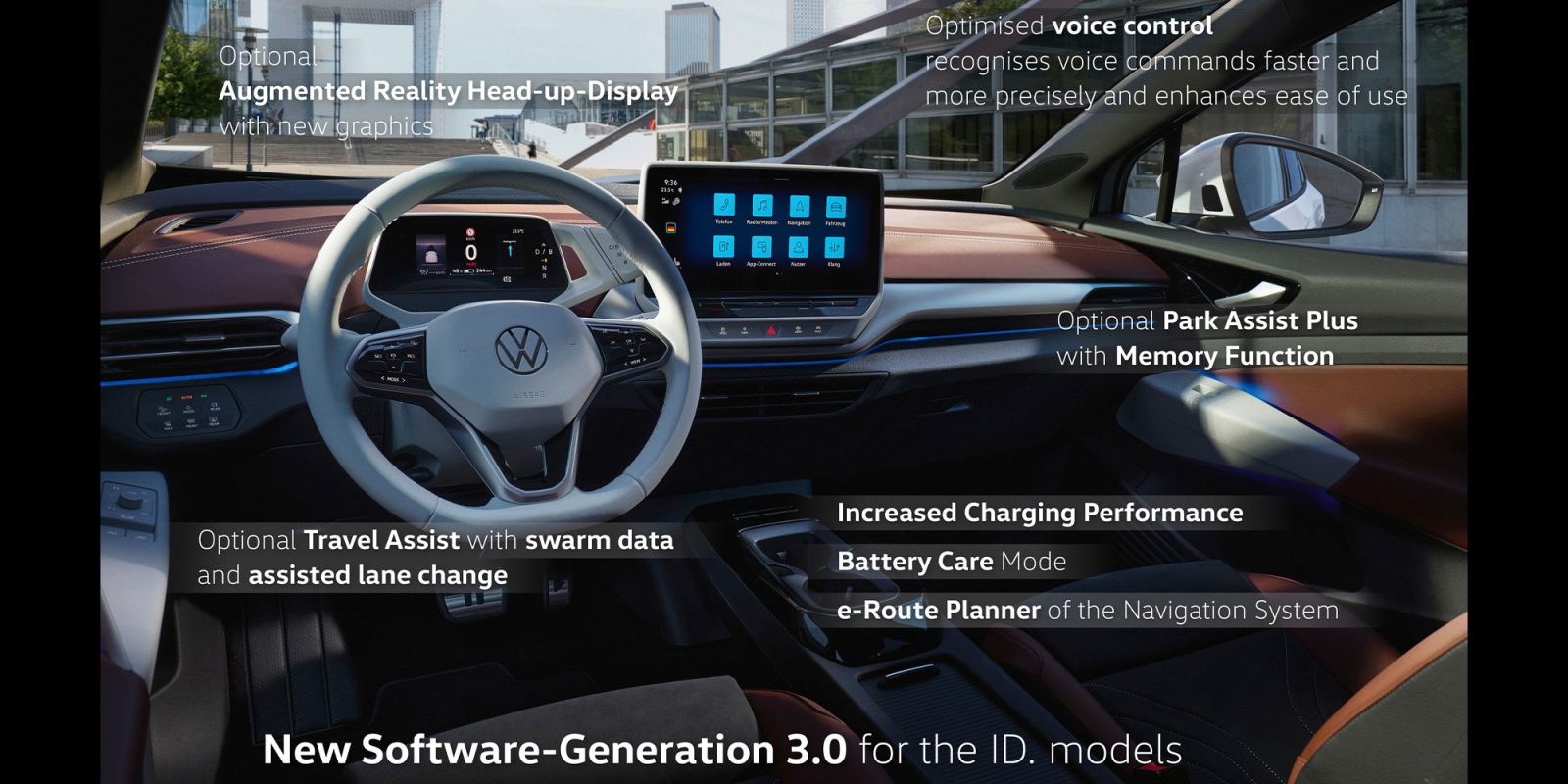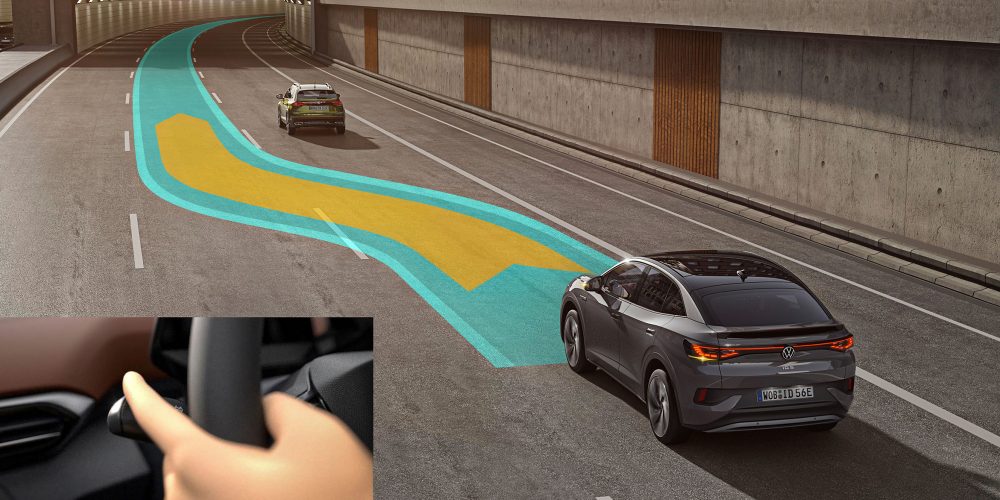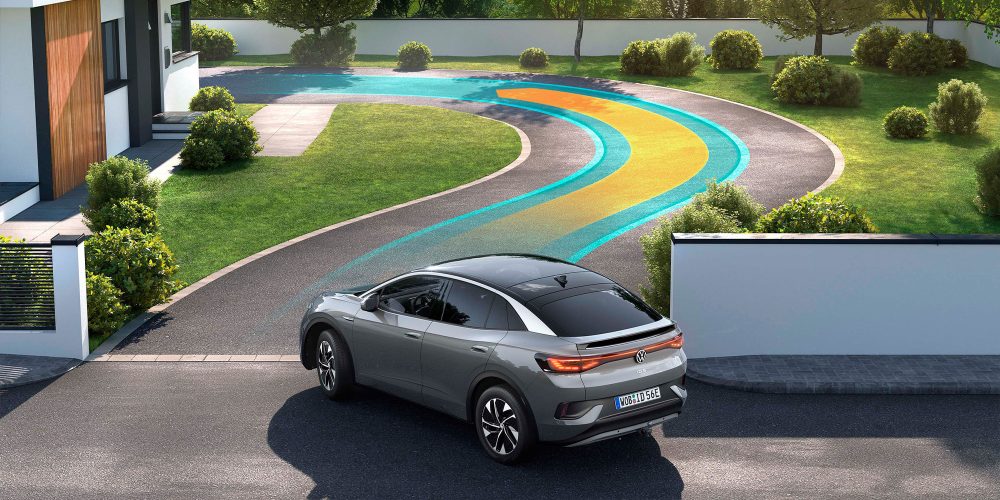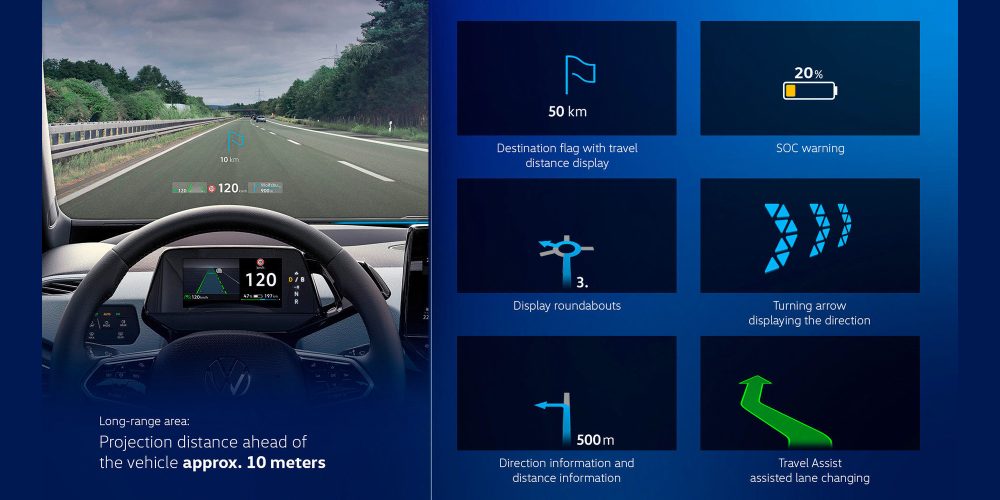
German automaker Volkswagen, has announced a long-anticipated generation 3.0 software update for its entire lineup of ID. electric vehicles. The 3.0 update includes a slew of new and optional upgrades to features like automated driving, charging performance, and the AR Heads-up Display.
Table of contents
Volkswagen’s background on OTA software updates
As Volkswagen’s global ID. family of EVs continues to grow, so does its YOY delivery growth, which more than doubled in 2021 compared to a year prior. This currently includes EVs like the ID.3 and ID.4, as well as as the ID.5 GTX.
These vehicles are all a part of Volkswagen’s ACCELERATE strategy to further EV adoption and become net-zero climate-neutral throughout the entire company by 2050 at the latest. This strategy also includes introducing a new BEV model each year through 2026.
One of the next EVs to join VW’s family will be the ID. Buzz minibus/cargo van, which will begin production in the first half of this year. Fortunately for newer Volkswagen drivers, their EVs should arrive with the latest software update included. Current drivers however, have been pretty patient up to this point.
It was one year ago that Volkswagen originally announced it would begin offering over-the-air software updates for its line of ID EVs, following a somewhat tumultuous start originally requiring early ID.3 and ID.4 drivers to visit a Volkswagen dealership to receive their software update (ID.2.1).
Last July, Volkswagen announced that an OTA software update was in fact coming to its ID lineup and that drivers would see regular software updates every 12 weeks. Last December, we learned that generation 3.0 software would be coming this spring with some welcomed improvements.
We now know what that update will entail when it arrives in new models and over-the-air in Q2.

Volkswagen Software-Generation 3.0 update
Volkswagen Group shared details of its upcoming software update in a press release, including whom it will become available to and when. One of the new features will be “Travel Assist with Swarm Data.”
This optional driver-assist technology will help keep your ID. EV in the center of the lane and maintain a safe distance from the car in front of it at a preset speed. Additionally, software 3.0 will utilize ultrasound radar to allow for assisted lane changes at speeds up to 90 km/h (~56 mph).
The feature can be activated by signaling the lane change and once the sensors detect that it is safe, the vehicle will change lanes for you as long as it detects the driver’s hands on the wheel. There’s a slew of fine print here to note, but the feature requires cellular data and is currently only available in certain countries.

“Park Assist Plus with Memory Function”
Continuing with new automated features is “Park Assist Plus,” in which the VW EV can search for a parking space and complete the maneuver, whether it’s a stall, a bay, or a parallel spot:
If desired, the assistant can park autonomously with the help of the environment sensors, and take full control of the car, including steering, acceleration, braking and gear changes. For this, the driver stops at the selected parking space, applies the brake and activates the parking process via the start button in the parking menu.
Note: the driver must still remain present in the vehicle and at the ready to take over in order for the parking assist feature to work. Additionally, Volkswagen is rolling out an optional feature called “Park Assist Plus with Memory Function,” in which the vehicle can be taught up to five different parking maneuvers at speeds below 40 km/h (25 mph) and a travel distance of up to 50 meters (164 feet).
The driver just has to park once and save the parking maneuver, so the EV can then repeat the learned parking process autonomously next time.

Display updates and optimized voice control
Volkswagen’s ID. 3.0 software will also see updates to its AR Heads-up Display (HUD), including additional displays in the long-distance zone and new symbols such as roundabouts and information on the distance to the destination.
The turn arrows now appear much more integrated into the surroundings. In the ID. Cockpit, the State of Charge (SOC) is displayed as a percentage next to a battery icon that shows the charge level, per the request of many current Volkswagen EV drivers.
Optional navigation has also been optimized to more precisely locate your EV in the lane, recommending ideal times for changing lanes at junctions and exits. This lane change indication will now also appear in the ID. Light, which is the strip light located under the windshield.
Lastly, Volkswagen’s “Hello ID” voice control recognizes commands faster and more precisely with improved recognition percentage up to 95%.
Charging improvements
Last but not least are the charging efficiencies Volkswagen is promising on this latest software update. This is something the German automaker was touting when we first covered the news of generation 3.0 this past December.
Soon, Volkswagen models equipped with the 77 kWh battery pack can charge at a maximum rate of 135 kW using a DCFC, up from 125 kW previously. VW elaborated:
Improvements to the thermal management of the battery make driving even more efficient and can increase the range, especially in cold weather. Customers who want to conserve their battery can activate the new Battery Care Mode. It limits the SOC charge level to 80 percent.
According to Volkswagen, new models coming out now will arrive with generation 3.0 software. However, those drivers who currently own a VW ID. vehicle will have to wait for an OTA update. Those updates are scheduled to arrive sometime in Q2 of this year.
FTC: We use income earning auto affiliate links. More.



Comments